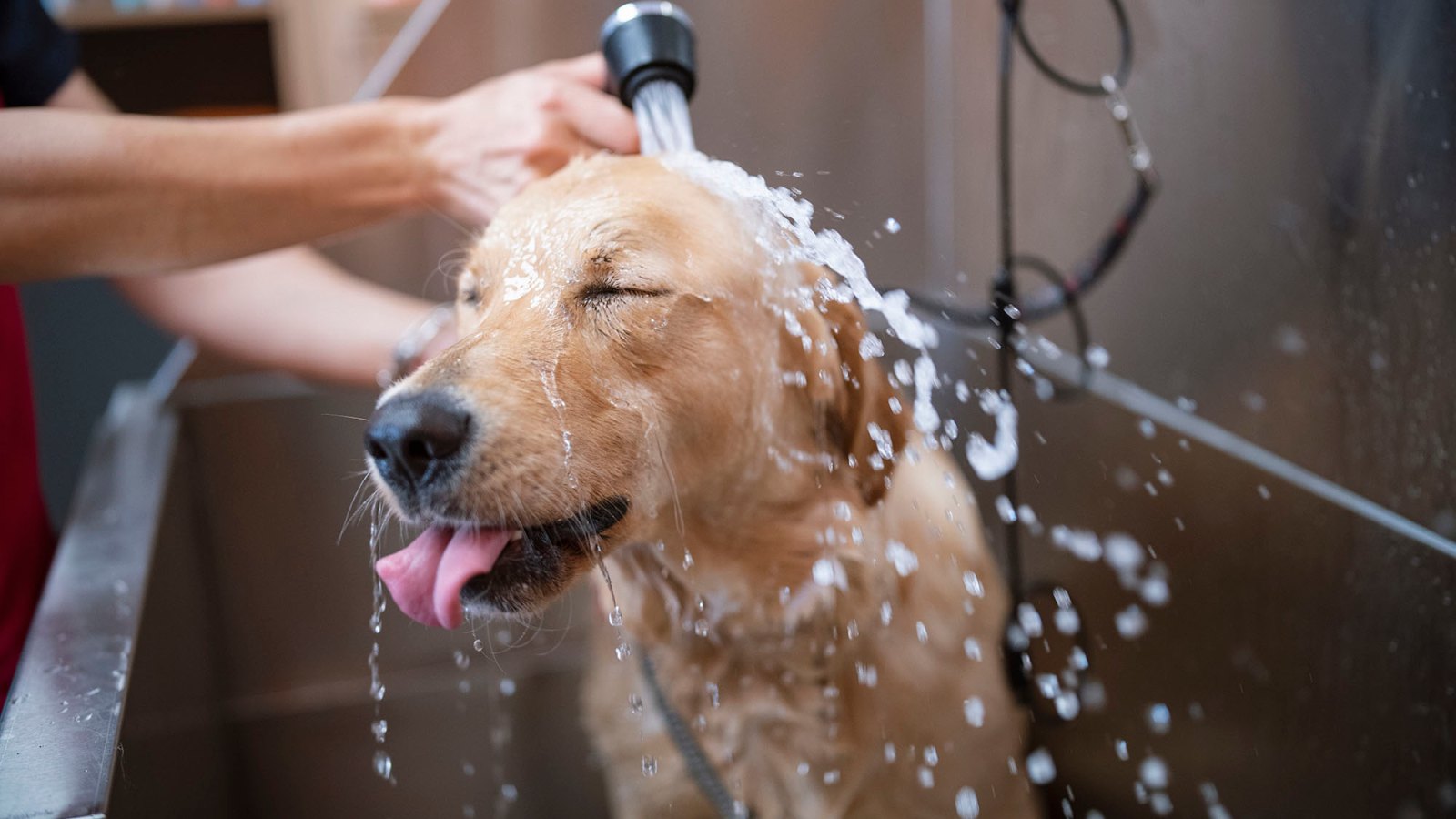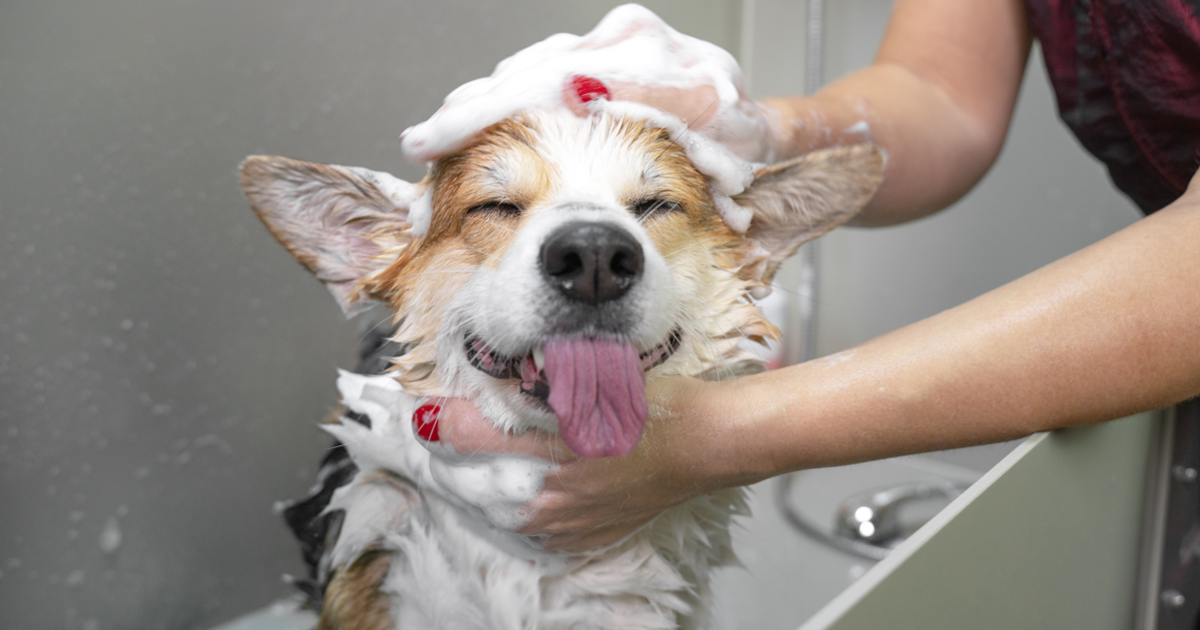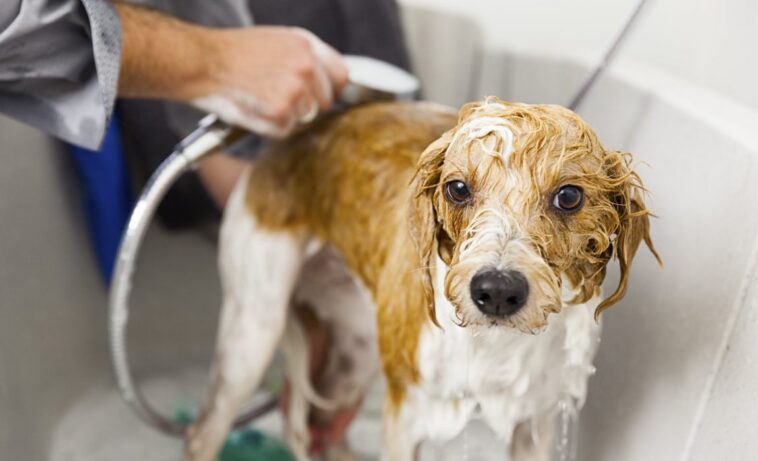If you’re a proud dog owner, you understand the importance of maintaining your furry friend’s coat in prime condition. Beyond regular grooming and baths, one essential tool in your canine care arsenal is a quality dog conditioner. In this comprehensive guide, we’ll explore the world of dog conditioners, unraveling their benefits, how to choose the right one, and addressing common concerns. Let’s dive into the world of silky-smooth, healthy dog coats.
Understanding the Role of Dog Conditioner
1. The Basics of Dog Coat Health
Just like humans, dogs benefit from proper hair care. A conditioner serves as the finishing touch to the bathing routine, promoting a soft, shiny, and manageable coat. It helps in detangling hair, reducing shedding, and preventing matting.
2. The Difference Between Dog and Human Conditioners
While the concept of conditioning is similar, human and dog conditioners have distinct formulations. Dog conditioners are specifically designed to suit the pH balance of canine skin, ensuring they don’t strip away natural oils and cause irritation. Human conditioners, on the other hand, may contain ingredients that are not suitable for dogs.
Choosing the Right Dog Conditioner: A Guide

1. Consider Your Dog’s Coat Type
Different breeds have different coat textures – from silky and smooth to dense and curly. Choose a conditioner that matches your dog’s coat type. For example, long-haired breeds may benefit from a moisturizing conditioner, while short-haired dogs might require a lightweight formula.
2. Hypoallergenic Formulas for Sensitive Pups
If your dog has sensitive skin, opt for a hypoallergenic conditioner. These formulas are crafted with mild ingredients to prevent skin irritation. They are free from harsh chemicals, fragrances, and dyes that could trigger allergies.
3. Ingredients Matter
Just as with shampoos, pay attention to the ingredients list. Natural ingredients like aloe vera, chamomile, and oatmeal provide additional benefits such as soothing irritated skin and promoting a healthy coat. Avoid conditioners with excessive chemicals or artificial additives.
4. Dual-Purpose Formulas for Efficiency
Consider dual-purpose formulas that combine shampoo and conditioner. These products streamline your grooming routine, saving time and effort while ensuring your dog’s coat receives the care it deserves.
Benefits of Regular Dog Conditioning
1. Minimizing Shedding
Regular conditioning helps reduce shedding by keeping the coat moisturized and preventing excessive hair loss. This is particularly beneficial for breeds with heavy shedding tendencies.
2. Detangling and Easy Grooming
A well-conditioned coat is easier to groom. The conditioner smoothens the hair, making it simpler to brush and reducing the risk of painful matting, especially in long-haired breeds.
3. Enhancing Coat Shine and Softness
The primary aesthetic benefit of conditioning is the enhancement of coat shine and softness. A well-maintained coat not only looks good but also contributes to your dog’s overall comfort.
Common Concerns Addressed: FAQs About Dog Conditioners

1. Can I Use Human Conditioner on My Dog?
It’s not recommended. Human conditioners may contain ingredients that can be harmful to dogs. Stick to products specifically formulated for canine use.
2. How Often Should I Condition My Dog’s Coat?
The frequency depends on your dog’s coat type and overall health. Generally, once a month is a good starting point, but long-haired breeds may benefit from more frequent conditioning.
3. Is Leave-In Conditioner Safe for Dogs?
Leave-in conditioners formulated for dogs can be safe and effective. However, ensure you follow the product instructions to avoid any adverse reactions.
4. Can I Make Dog Conditioner at Home?
While it’s possible to make DIY dog conditioners using natural ingredients like coconut oil or aloe vera, it’s essential to ensure the formula suits your dog’s specific needs. Consult with your vet before experimenting.
5. What if My Dog Has an Allergic Reaction to Conditioner?
If you notice signs of allergies, such as itching or redness, rinse your dog immediately and consult your veterinarian. They can recommend a hypoallergenic alternative.
6. Should I Condition My Puppy’s Coat?
Puppies can benefit from conditioning, but it’s crucial to choose a mild, puppy-friendly formula. Introduce conditioning gradually and monitor for any adverse reactions.
Addressing Skin Sensitivities: The Importance of Choosing the Right Dog Conditioner

Understanding Canine Skin Sensitivities
When it comes to dogs with sensitive skin, the choice of conditioner becomes even more critical. Just as some humans react adversely to certain skincare products, dogs too can have sensitivities or allergies to certain ingredients in conditioners. This makes it vital to understand what ingredients are in the products you’re using and how they might affect your dog. Opting for conditioners with natural, gentle ingredients can help minimize the risk of skin irritations and allergic reactions, ensuring your dog remains comfortable and itch-free.
Selecting Conditioners for Sensitive Skin
For owners of dogs with sensitive skin, selecting the right conditioner involves careful consideration. Look for products labeled as hypoallergenic or designed for sensitive skin. These conditioners typically avoid harsh chemicals, artificial fragrances, and dyes, which are common irritants. Instead, they may contain soothing ingredients like aloe vera, oatmeal, or chamomile, known for their gentle, skin-calming properties. Remember, what works for one dog may not work for another, so it might take some trial and error to find the perfect fit for your pet’s unique needs.
The Role of Conditioning in Managing Dog Skin Conditions
Conditioning and Skin Health
Conditioning plays a pivotal role in maintaining the health and appearance of a dog’s skin and coat. Regular use of a suitable conditioner can profoundly affect a dog’s skin health, especially for those with dry, itchy, or sensitive skin. Quality conditioners often contain nourishing ingredients like aloe vera, coconut oil, or oatmeal, which provide essential hydration and soothe skin irritations. These ingredients help maintain the natural moisture balance of the skin, preventing dryness and flakiness. Furthermore, conditioners can form a protective barrier on the skin, safeguarding against environmental stressors. Regular conditioning not only enhances the coat’s shine and softness but also contributes to overall skin health, making it an indispensable part of a dog’s grooming routine.
Conclusion: A Silky Finish for Every Pup
In the world of dog grooming, a high-quality conditioner is the secret ingredient to a silky, healthy coat. By understanding your dog’s unique needs, choosing the right formula, and incorporating regular conditioning into your grooming routine, you’ll be well on your way to a happy and well-groomed canine companion. Treat your furry friend to the luxury of a silky finish – they deserve it!




